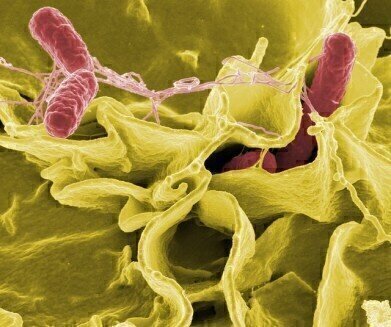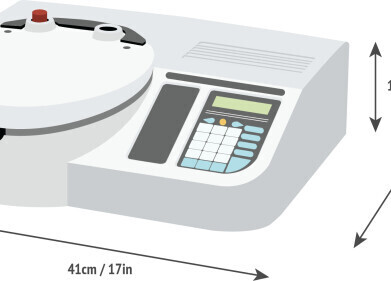Chromatography
Can Bloodsucking Parasites Cure Asthma?
Nov 14 2016
Generally, any mention of bloodsucking parasites conjures up an instant ‘yuk’ factor. But according to a team of scientists, a certain species of hookworm could be on-track to shun its stigma, and emerge as the next big thing in asthma treatment.
Commonly penetrating the skin on the soles of the feet and making their way up to the small intestine, hookworms are parasites that suck blood from the lining of the gut. In the process, they secrete proteins that boost the immune system and help keep their host healthy. It’s this all-important gesture that captured the attention of scientists, and led them to investigate hookworms as a possible treatment for asthma.
Hookworms off the hook
While serious hookworm infections can come with side-effects of nausea, stomach cramps and diarrhoea, studies also suggest that the proteins they secrete could be powerful autoimmune disease combatants. Now, a group of scientists from James Cook University have managed to isolate this protein, and are claiming that it could be used to treat autoimmune conditions. Their theory is backed up by previous studies that indicate a direct correlation between the rise of autoimmune diseases in developing countries, and a decline in parasitic infections such as hookworm.
Clinical trials already underway
Phase II and phase III clinical trials are already in motion, with scientists confirming that results are looking positive for both celiac and inflammatory bowel disease conditions. Patients volunteered to have live hookworms rehoused in their guts, though if scientists are able to isolate the protein a simple injection could be all that’s needed to cure asthma.
“We found that you don’t need the whole parasite to see protection against inflammation. The products that they secrete in their spit [are] where all the protective properties lie,” comments immunologist and lead study author Severine Navarro.
Anti-inflammatories vs asthma
So how does the protein work? During allergy attacks immune cells work in overtime to rid the airways of irritating particles like pollen and dust mites. This contracts and inflames the smooth muscles which can trigger coughing, wheezing and shortage of breath. The same bronchospasm process occurs during an asthma attack, though the reaction is intrinsic and can happen without the presence of irritating particles.
With hookworms on call, the body is armed with anti-inflammatory protein 2, aka AIP-2. This switches the immune system from being pro-inflammatory, to anti-inflammatory. So, when it comes to managing asthma symptoms, the bloodsucking hookworms could be a secret weapon.
The theory has already been tested on mice, with Navarro and her team injecting the rodents with a shot of AIP-2. This “almost completely reversed” asthma symptoms, causing pro-inflammatory enzymes to decrease, as well as improving breathing. The team is now conducting clinical trials on human candidates, and plans to continue developing the concept as a bona fide cure.
As well as looking at ways to cure asthma, the medical community is also pioneering ways to prevent it. VOCs are a major concern, and are thought to trigger a myriad of health problems, including respiratory issues. For more information on the precautions being taken to manage the global issue, ‘Trace Level VOC Analysis in Different Sample Matrices’ spotlights the sophisticated VSP4000 purge and trap system.
Digital Edition
Lab Asia Dec 2025
December 2025
Chromatography Articles- Cutting-edge sample preparation tools help laboratories to stay ahead of the curveMass Spectrometry & Spectroscopy Articles- Unlocking the complexity of metabolomics: Pushi...
View all digital editions
Events
Jan 21 2026 Tokyo, Japan
Jan 28 2026 Tokyo, Japan
Jan 29 2026 New Delhi, India
Feb 07 2026 Boston, MA, USA
Asia Pharma Expo/Asia Lab Expo
Feb 12 2026 Dhaka, Bangladesh



















